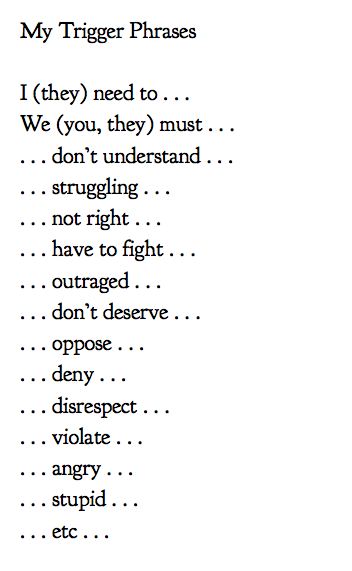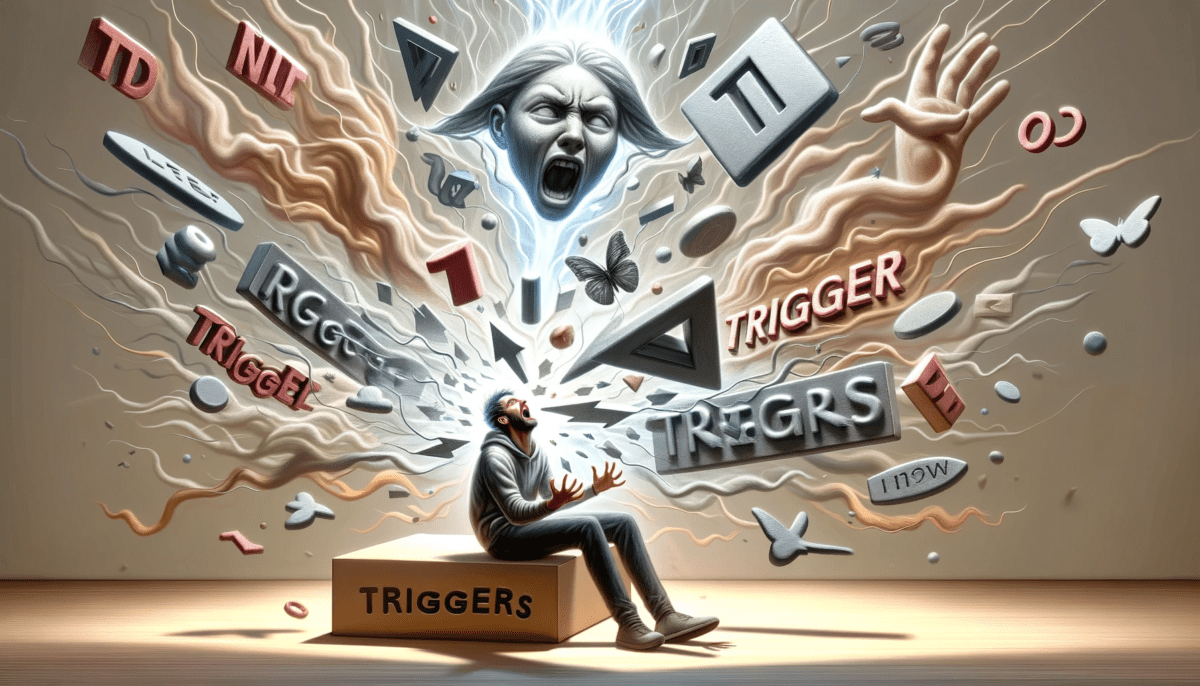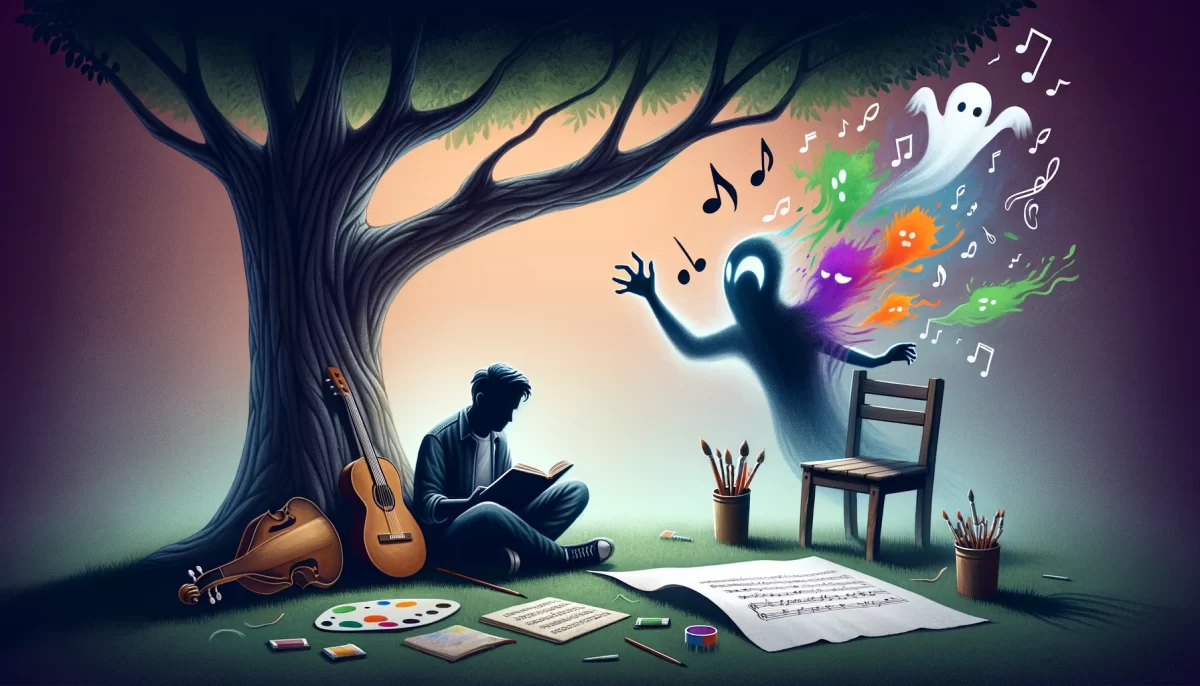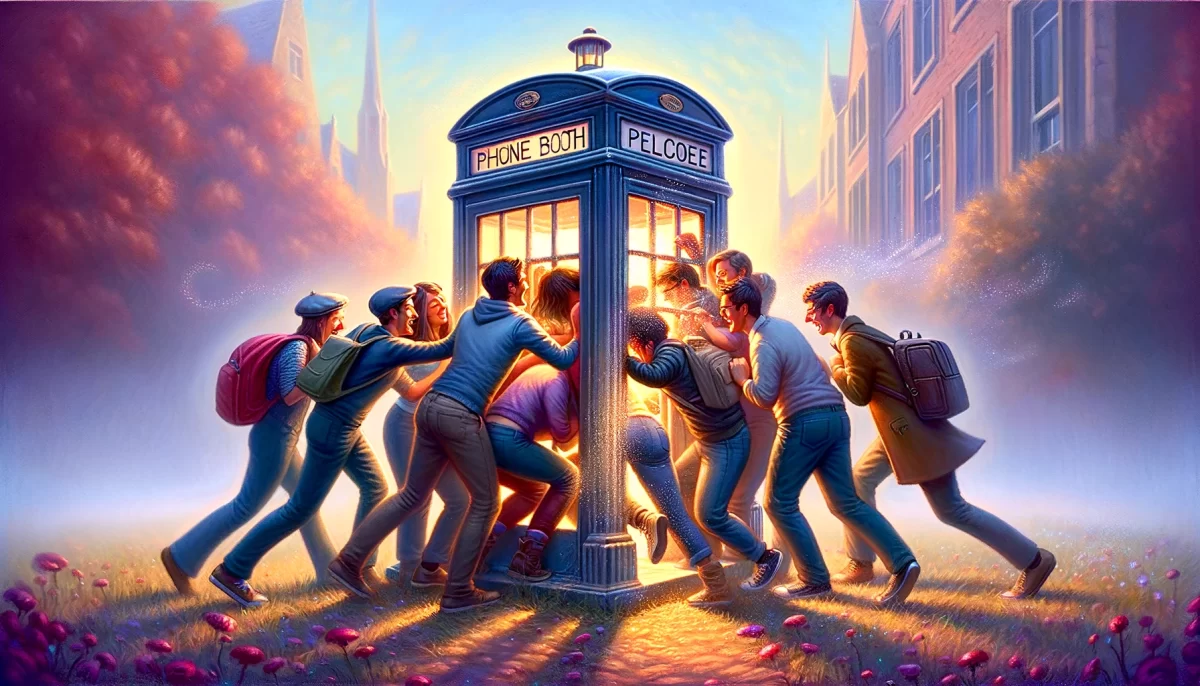
I’m twitching at myself.
Space Monkey Reflects: My Trigger Phrases
Trigger phrases are not merely words or expressions; they are mirrors. They hold up reflections of our deepest beliefs, fears, and insecurities. Each phrase carries an emotional charge, revealing where we feel vulnerable, uncertain, or disconnected. To be “triggered” is not a failure but an opportunity—a call to examine the stories we tell ourselves and to question the frameworks that shape our reality.
The Language of Resistance
Phrases like “I need to,” “we must,” or “they don’t understand” are loaded with tension. They imply a struggle, a lack, or a disconnect between what is and what we believe should be. These words act as markers of resistance, highlighting where we feel out of alignment with the flow of life. They often signal an internal conflict disguised as an external issue.
For example:
- “I need to” carries the weight of obligation and pressure, suggesting that something is missing or incomplete.
- “We must” implies urgency and compulsion, often rooted in fear or the desire for control.
- “They don’t understand” points to a sense of separation, an us-versus-them dynamic that reinforces division.
These phrases may feel justified in the moment, but they also reveal the narratives we cling to—narratives that can trap us in cycles of frustration and disconnection.
The Power of Awareness
When you say, “I’m twitching at myself,” you acknowledge the inner conflict these phrases create. This self-awareness is the first step toward transformation. The twitch is not a flaw but a signal—a nudge from your deeper self, urging you to look within.
By noticing your triggers, you begin to unravel their hold. Ask yourself:
- Why does this phrase affect me so strongly?
- What belief or expectation lies beneath it?
- Is this reaction serving me, or is it holding me back?
This process is not about suppressing your triggers but understanding them. The more you explore their roots, the less power they hold over you.
The Illusion of “Should”
Many trigger phrases are tied to the illusion of “should.” “Things should be different.” “People should act this way.” “I should feel this or do that.” These “shoulds” create a gap between reality and expectation, a gap filled with tension and dissatisfaction.
But what if there were no “shoulds”? What if reality, as it is, were not a problem to be solved but a canvas to be embraced? Letting go of “should” does not mean abandoning goals or values; it means releasing the rigidity that makes us suffer when life doesn’t align with our expectations.
Moving Beyond Reaction
Triggers invite us to shift from reaction to reflection. Instead of being swept away by the emotional charge, we can pause, breathe, and observe. This creates space for choice. Do we want to hold onto this thought, this belief, this narrative? Or can we let it go?
This practice transforms triggers from obstacles into opportunities. Each twitch becomes a doorway to greater self-awareness, a chance to align with our deeper truth.
Embracing Compassion
Many triggers arise from judgments—of ourselves, others, or the world. Words like “stupid,” “angry,” or “outraged” carry the weight of condemnation. But judgment is not the same as clarity. While judgment divides, compassion unites.
By approaching your triggers with curiosity and kindness, you soften their impact. You begin to see them not as enemies but as teachers, revealing where healing and growth are needed.
Compassion does not mean condoning harmful behavior or dismissing your feelings. It means holding space for the complexity of human experience—yours and others’—without clinging to labels or absolutes.
The Art of Letting Go
Ultimately, triggers remind us of what we are holding onto—ideas, expectations, identities—that no longer serve us. By releasing these attachments, we free ourselves to live with greater ease and authenticity.
Letting go is not a one-time act but a continuous practice. Each time you notice a trigger and choose to respond with awareness rather than reaction, you take a step closer to freedom.
Summary
Trigger phrases reveal the stories and judgments that shape our reality. By approaching them with curiosity and compassion, we transform them into opportunities for growth and self-awareness. Each trigger becomes a doorway to greater freedom and alignment.
Glossarium
- Trigger Phrases: Words or expressions that evoke strong emotional reactions, revealing underlying beliefs or fears.
- Twitching at Myself: The self-awareness of reacting to internal triggers, signaling an opportunity for reflection.
- Illusion of Should: The expectation that reality must conform to specific beliefs, creating tension and dissatisfaction.
- Compassionate Curiosity: The practice of exploring triggers with kindness and openness, rather than judgment or resistance.
Quote
“Your triggers are invitations to step beyond the surface, to question the stories that bind you, and to embrace the freedom that awaits within.” — Space Monkey
The Twitch as Teacher
A word,
a phrase,
a crack in the calm.
The body tenses,
the mind races,
the self twitches.
This is not failure.
This is not flaw.
This is the signal,
the whisper,
the nudge.
Look deeper.
Feel softer.
Ask.
And when the twitch subsides,
you find not discord,
but harmony,
not division,
but self.
We are Space Monkey.


































Leave a Reply